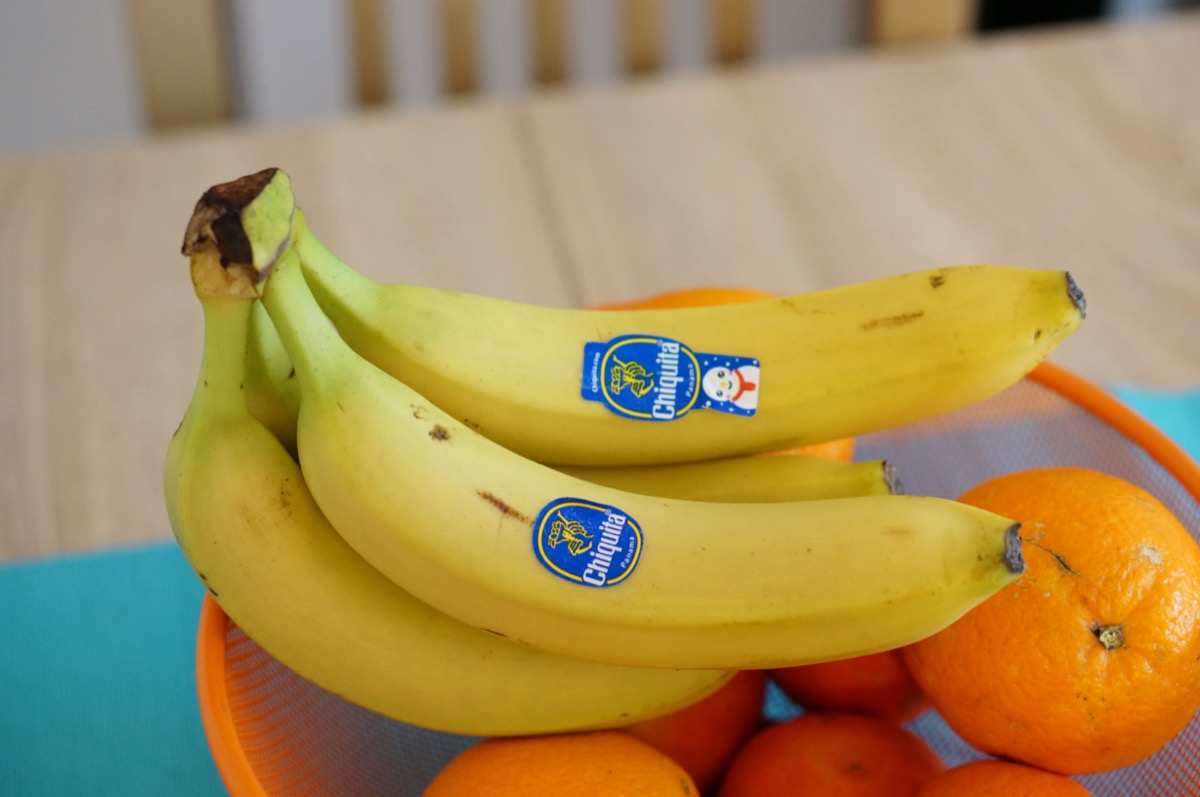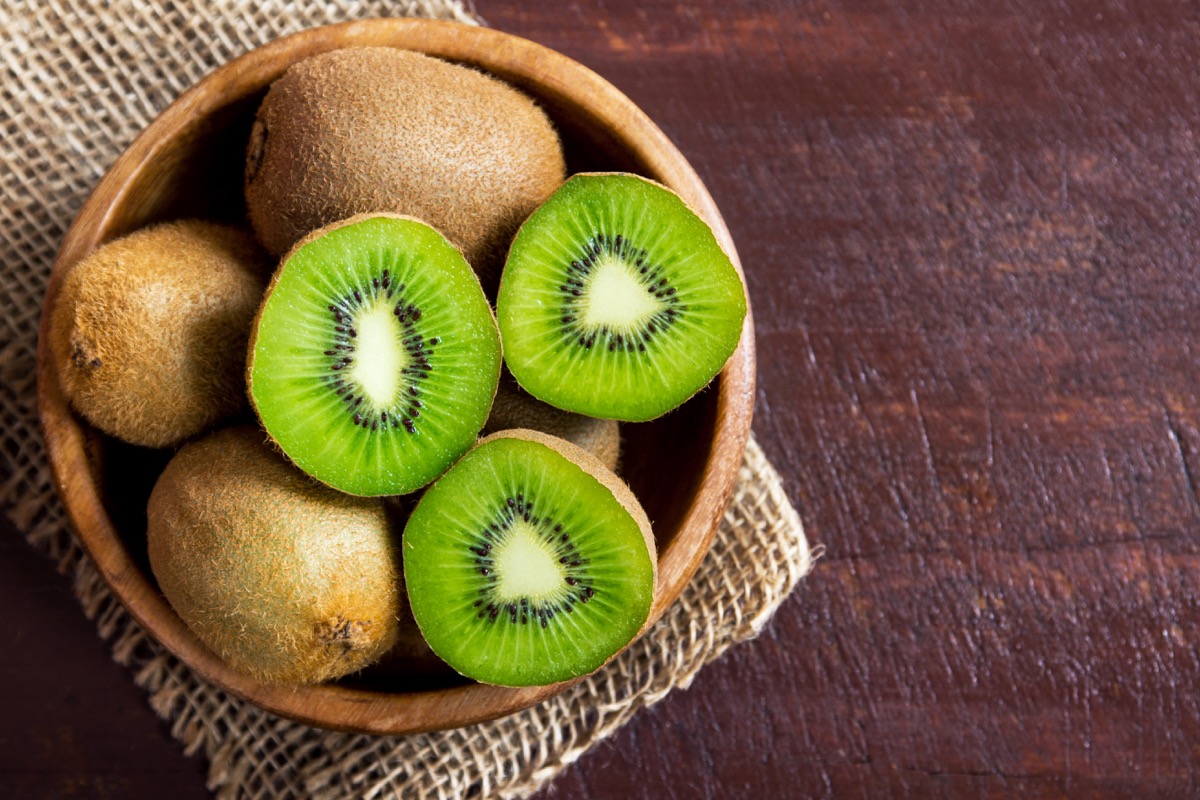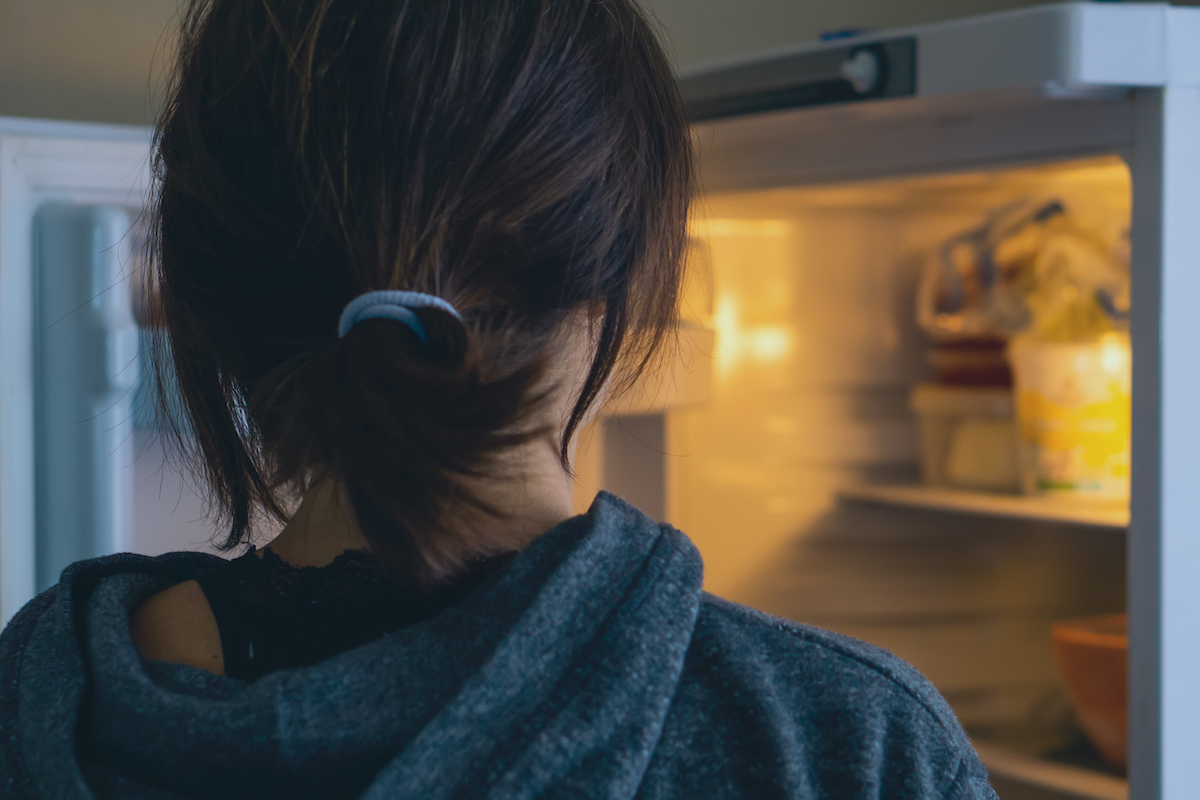Bananas are famously helpful in treating and preventing cramps since they’re chock-full of potassium. However, experts say bananas have other benefits that could help you have a more restful night. McKenzie Hyde, certified sleep science coach with Amerisleep, says that “the electrolytes, magnesium, and potassium loaded in bananas are natural muscle-relaxants that put the body and mind in a relaxed state needed for a good night’s sleep.” Bananas also contain complex carbohydrates and tryptophan, the amino acid found in turkey that makes you sleepy following Thanksgiving diner. Tryptophan helps the body produce serotonin and melatonin, which help signal the brain that it’s time to fall asleep, Hyde explains.ae0fcc31ae342fd3a1346ebb1f342fcb To level up your late-night snack, add some peanut butter to make you fuller and sleepier. A scoop of peanut butter with your banana could add an extra dollop of tryptophan. “Peanut butter is beneficial to aiding sleep and maintaining the body’s internal clock,” Hyde adds. “Peanut butter also helps with mood and alleviates depression, anxiety, and stress. which are all top sleep inhibitors.” And for things you shouldn’t be ingesting, This Is the One Vitamin You Should Never Take, Doctors Say. Integrative medicine physician Monisha Bhanote, MD, has a favorite food to recommend to patients. She suggests “tart cherries or tart cherry juice, which has antioxidants and high levels of phytochemicals, including melatonin, which is important for regulating our circadian rhythm.” A 2018 study published by the American Journal of Therapeutics found that cherry juice increased sleep time and efficiency, likely due to an increase in tryptophan, and reduced inflammation. Another 2012 study from the European Journal of Nutrition concluded that cherry juice elevated melatonin levels significantly and enhanced sleep quality. “This data suggests that consumption of a tart cherry juice concentrate provides an increase in exogenous melatonin that is beneficial in improving sleep duration and quality in healthy men and women and might be of benefit in managing disturbed sleep,” Bhanote says. And for more nighttime concerns, If This Body Part Hurts You at Night, See Your Doctor. Alex Savy, certified sleep science coach and founder of Sleeping Ocean, says that the consumption of kiwi could “help boost serotonin production, which may serve as an extra tool for regulating your natural sleep and wake cycles.” A 2011 study published by the Asia Pacific Journal of Clinical Nutrition found that consuming two kiwi one hour before bed nightly improved sleep time and efficiency. The researchers feel kiwi could “improve sleep onset, duration, and efficiency in adults with self-reported sleep disturbances.” And for more useful information delivered straight to your inbox, sign up for our daily newsletter. Eating too close to bedtime has long gotten a bad rap. While eating a heavy meal is ill-advised, new research has found that snacking on something small before bed may not be as detrimental as you’ve been led to believe. “Negative outcomes have been demonstrated in response to large mixed meals in populations that consume a majority of their daily food intake during the night,” according to a 2015 study from Nutrients. “However, data is beginning to mount to suggest that negative outcomes may not be consistent when the food choice is small, nutrient-dense, low energy foods and/or single macronutrients rather than large mixed-meals.” The study concluded that nighttime consumption of small meals “does not appear to be harmful and may be beneficial for muscle protein synthesis and cardiometabolic health.” And for more health guidance, If You Feel This at Night, You Need to Get Your Liver Checked, Doctors Say.



